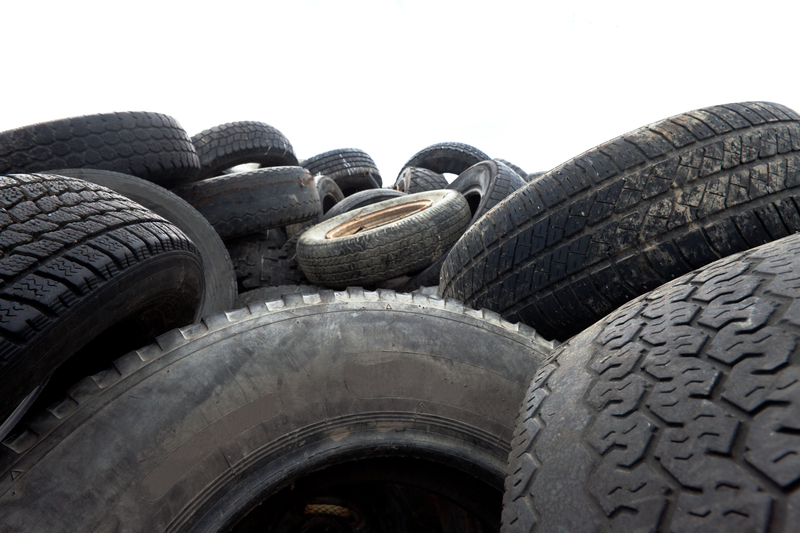Save More on Bulky Waste Item Collection with Efficient Planning
When it comes to disposing of unwanted large items, the cost and effort involved in bulky waste collection can be significant. However, with the right strategies, you can save money on bulky waste item pickup and also make the process far more efficient. In this comprehensive guide, we'll explore the many ways you can reduce expenses, improve sustainability, and enjoy hassle-free removal for everything from old furniture to household appliances.

Understanding Bulky Waste and Its Challenges
Bulky waste refers to items too large for regular household bins, such as:
- Sofas, mattresses, and other large furniture
- White goods--e.g., fridges, washing machines, ovens
- Carpets, rugs, and large textiles
- Garden waste like large branches or tree trunks
- Exercise equipment, large toys, and more
Collecting and disposing of these items responsibly often comes at a cost--both financial and environmental. Local councils typically charge for bulk item collection services, while private junk removal companies can be even pricier. Without proper planning, you might end up paying more than necessary or contributing to landfill waste.
Why Efficient Planning Matters
Planning ahead when dealing with bulky waste removal provides several advantages:
- Cost savings: Combining items, choosing the right service, and avoiding last-minute arrangements can reduce fees considerably.
- Environmental benefits: Efficient sorting and timely collection enable more recycling and reuse opportunities.
- Convenience: Organizing pickups in advance ensures a smoother process and less disruption to household routines.
Let's delve into effective ways to optimize and save on large item collection.
Tips to Save More on Bulky Waste Item Collection
1. Declutter and Consolidate
Before booking a pickup, take the time to assess all the items you wish to dispose of. Declutter your home or workplace and make a comprehensive list. By consolidating items for one large waste collection rather than several smaller ones, you can significantly reduce per-item charges and minimise logistics costs.
2. Understand Local Council Services
Many local authorities offer residents subsidized or even free bulky waste collection days each year. Check your local council's website for:
- Eligibility criteria and accepted items
- Annual free or discounted collection dates
- How many items can be collected per booking
Top tip: Some councils restrict free pickups to a set number of items or require advanced booking, so plan accordingly to maximize savings.
3. Compare Bulk Waste Collection Companies
If council services aren't suitable or are fully booked, private companies are another option. Always:
- Request detailed quotes from multiple providers
- Check for hidden charges--such as for extra labor or stairs
- Ask whether the company provides recycling or donates usable items
4. Schedule Collections Efficiently
Many providers charge less for early bookings or off-peak collection slots. Grouping with neighbors or nearby friends with similar needs might also qualify you for a bulk discount. Efficient scheduling ensures fuller truck loads--meaning less environmental impact and lower costs shared between clients.
5. Pack and Prepare Items Properly
Save time and money by ensuring all bulky waste items are easy to pick up. Remove loose parts, disconnect appliances, and place items at the designated spot (such as kerbside) ahead of time. This minimizes labor for the crew and may reduce pickup fees.
Did you know? Some companies charge a premium if items aren't ready or need to be carried from inside the property.
6. Repurpose and Rehome When Possible
Not everything destined for disposal needs to go in a landfill. Before booking bulky waste removal, consider:
- Donating usable furniture to charities or local shelters
- Selling or giving away items through online platforms or community groups
- Upcycling for personal or community projects
7. Separate Recyclables from General Waste
Sorting your load into recyclables (e.g., metal, electronic appliances) and general rubbish can lower collection costs with some providers. Many councils or centers offer free or cheaper drop-off for recyclable bulk items, so take advantage where possible.
Bulky Waste Collection: The Eco-Friendly Angle
Efficiently planning your bulk item disposal doesn't just leave more in your wallet--it also reduces your carbon footprint. Here's how:
- Less landfill: Consolidation and sorting means more items can be recycled or reused
- Lower emissions: Fewer trips for collection trucks translate to reduced fuel use
- Community sharing: Donating or selling goods keeps them in circulation longer
How to Plan Your Bulky Waste Collection Step by Step
Step 1: Audit and Sort
List all bulky waste items you need to dispose of and sort by type: furniture, appliances, yard waste, etc. For each, determine:
- Is it suitable for donation or resale?
- Can it be taken to a recycling center for free?
- Does it contain hazardous materials (e.g., refrigerators, electronics) requiring special disposal?
Step 2: Choose the Right Service
Depending on your items and the services available, decide between:
- Council bulky item collection: Often cheapest, but may have wait times and item limits.
- Private waste removal: Faster and more flexible, especially for large volumes or commercial properties.
- Self-hauling: For those with a vehicle, taking items directly to the local tip or recycling center can be cost-effective.
Step 3: Prepare and Book in Advance
Contact your chosen service as early as possible--especially for free council pickups, which may be booked months ahead. Have all relevant details ready, such as item sizes, locations, and access instructions.
Pro tip: Avoid last-minute bookings to steer clear of rush fees and limited availability!
Step 4: Prepare Items and Collection Point
Ensure items are empty, clean, and placed where indicated (e.g., kerbside). For electronics or white goods, remove doors for safety, and for furniture, dismantle where practical.
Step 5: Confirm and Follow Up
After booking, confirm your appointment in writing. On the collection day, double-check all items are accessible and nothing has been blocked or added. If there are any problems, communicate promptly to avoid missed pickups or extra charges.
The Hidden Savings of Planning Ahead
While the focus may be on direct costs, there are indirect savings with an organized approach to bulk item waste removal:
- Preventing duplicate trips for forgotten items
- Reducing home insurance risks by keeping hazardous waste from accumulating
- Saving time and effort--freeing you up for more valuable activities
Common Mistakes That Increase Bulky Waste Collection Costs
- Booking multiple small pickups: Increases transportation and admin costs.
- Failing to prepare items: Results in additional labor charges or refused items.
- Ignoring donation/recycling options: Misses free (or even profit-generating) alternatives.
- Leaving items unlisted/unsorted: May require a rescheduled pickup and extra fees.
- Overlooking scheduled free council collection dates: Leading to unnecessary payment to private firms.
Bulky Waste Recycling: What Can Be Reused or Recycled?
Many councils and companies will recycle or donate much of what is collected. Common recyclable or reusable items include:
- Metals (old bed frames, washing machines, bikes)
- Wood (tables, chairs, shelving--if untreated)
- Mattresses (via specialist recycling firms)
- Appliances and electronics (through WEEE recycling schemes)

FAQs: Bulky Waste Collection and Efficient Planning
- How often can I use council bulky waste services?
This varies by area--typically once or twice a year for free or subsidized collections. - Can I mix business and domestic waste?
Usually, business waste has separate rules and costs--always check beforehand. - Are mattresses and sofas always accepted?
Some councils have restrictions due to fire safety regulations; check eligibility when booking. - What if my items won't fit at kerbside?
Most services require items to be accessible. If in doubt, contact your provider in advance to discuss options. - How do I ensure my waste is handled responsibly?
Request a waste transfer note or evidence of ethical recycling/disposal from your service provider.
In Summary: Efficient Planning equals Big Savings
Bulky waste collection doesn't have to be expensive or inconvenient. With efficient planning, you can save more on large waste item disposal by maximizing council services, consolidating pickups, and prepping items in advance. Not only does this reduce costs, but it also promotes sustainability through recycling and donation.
Key takeaways:
- Plan and book ahead to leverage free or discounted options
- Sort and prepare items to avoid extra charges and improve recycling
- Work with neighbors for even greater savings and efficiency
- Explore reuse, repair, and resale before opting for paid disposal
By following these strategies, you'll not only keep your home clear of clutter but also enjoy peace of mind knowing that your bulky item waste collection was both cost-effective and environmentally friendly.
Start planning today and watch your savings--and your space--grow!
